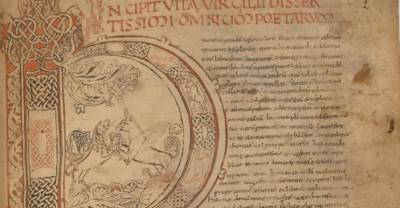Ordering, Constructing, Empowering: Fragments of the Roman Republican Antiquarians
"This project, will radically transform our understanding of Roman Republican culture by firmly establishing a new textual and contextual framework for the elaboration of knowledge and the establishment of the religious and institutional system, and its Greek philosophical underpinnings, in the Republic. This, in turn, will have an enormous impact on the study of those later periods, which look back at Rome as a focal point of cultural reference.” (Professor Valentina Arena).

The first aim of FRRAnt is to produce the first-ever complete critical edition of the fragments of the Roman Republican antiquarians, which will be philologically rigorous and historically transformative, both as a printed edition and an online database. Supplying this edition with English translation, commentary, and introductions to each author, as well as with a series of accompanying volumes, FRRAnt’s ambition is to launch the study of these texts as a major new departure for the study of the ancient world and of the classical tradition from the Renaissance onwards.
The printed edition will be accompanied by an online database.
This electronic system will allow not only collecting, sharing and querying the research data by the project team, but also transforming the data into formats for external use. These data stored in the database will also be linked with pre-existing material, thus the database will contain a higher quantity of information pertaining to issues of both content and text than the printed edition. This would benefit in particular those researchers who are not interested in Republican antiquarianism per se, but rather in related fields.
The advantages of the online database will be to provide the user with the opportunity not only to access this material in translation, but also to order it as preferred, making the most of ‘breaking free of the impossibility of assigning fragments to books’ by allowing users to arrange the material according to their judgment and explore more widely the intellectual landscape of the Republic.
There are two main issues in dealing with the production of the antiquarians: first their works are mainly preserved in a fragmentary way, through quotations in later authors, often in texts of a completely different nature, and secondly, later scholarship has tended to divide this material in subfields of knowledge and so obscuring its deeper continuities, and undermining their collective contribution to the political and philosophical debate in ancient Rome.
Considering the enormous – almost constitutive – influence of antiquarian studies over the course of early modern and modern cultural history, it is remarkable how little attention has been paid to the nature of these works in their original context of ancient Republican Rome. One of the most authoritative scholars in the field, Arnaldo Momigliano, in his study ‘Ancient History and the Antiquarian’ published in 1950, first established the field of antiquarian studies by referring to changes introduced by disciplinary knowledge and in relation to history. However, Momigliano’s brilliant essay has also tended to constrain subsequent scholarship. Building on the Saussurean distinction between the synchronic and the diachronic, Momigliano advocated that ancient antiquarianism was characterised by a distinctive interest in remote changes along a synchronic axis. However, this distinction is overstated, and created too sharp a dichotomy between history and antiquarianism, setting up the historian against the antiquary. As a result, two main consequences in the investigation of different ways of recording and narrating the past followed: first, a focus on the issue of the definition of antiquarianism vis-à-vis history; the second a disregard of the pivotal role played by philology in the development of antiquarian studies.
Not only did textual exegesis combine philology with an understanding of the history of religion, legal practices, and literary works, but also classical lexicography took precisely the form of the study of etymology. Whether investigating Roman history, language, family genealogy, jurisprudence, religious lore, or political procedure, antiquarian tools were historical research and etymology, a genealogical-reconstructive method which was substantially inductive and aimed to work back from the present.
 Close
Close

